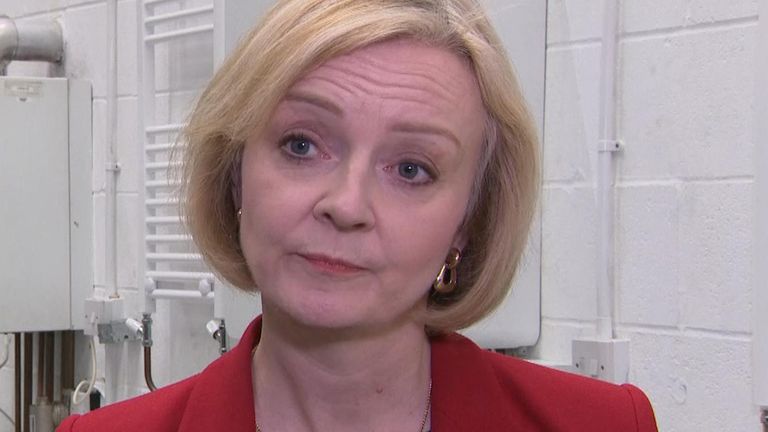A lesson from ‘Reaganomics’: The collision of theory and reality could prove fatal for PM Liz Truss and Tory party | Politics News
In his book on the failure of Ronald Reagan’s economic revolution, the US president’s one-time guru David Stockman wrote that the only thing worse than short-termism in politics is ideological hubris in government.
The so-called “father of Reaganomics”, Stockman was a key part of an economic overhaul that has some eerie echoes of the current UK government strategy – not least tax cuts, supply-side reforms and spending cuts.
But in his 1986 post-mortem of his time in office, Stockman concludes that no such revolution was possible – in part because of politicians and their need to please voters – and he attacks “the false belief that in a capitalist democracy we can peer deep into the veil of the future and chain the ship of state to an exacting blueprint”.
One former UK cabinet minister appeared to echo this sentiment earlier this week saying that while they understood “the theory” of Liz Truss’s plan “you can do that when you’re not competing with inflation”.
This is the head-versus-heart conundrum many Conservative MPs are now wrestling with.
But alongside the controversial policies announced by Kwasi Kwarteng last Friday, Tories heading to their conference in Birmingham this weekend are now also sizing up the prospect of what one newspaper has branded a “new age of austerity”.
In a bid to reassure jittery markets, cabinet ministers are now talking of “rigorous spending discipline” and “trimming the fat” in government.
Amid double-digit inflation and expensive tax cuts, economists are dubious whether such talk will steady the situation and warn that belt-tightening will need to be similar to the early austerity years.
This poses a series of problems both fiscal and political in their nature.
Firstly, where will this fat be trimmed from?
Given previous commitments on the NHS and security, any tightening at health or defence seems unfathomable. But other departments are hardly ripe for a snip.
Is it possible to squeeze the Ministry of Justice during a giant court backlog? Can education really be sized up after two years of COVID turmoil and in a time of rising prices?
Levelling Up Secretary Simon Clarke has suggested some of the capital spending commitments made during Boris Johnson’s time in Number 10 could be a target.
But is it sensible to stop building stuff when the sole focus of the government is growth?
The political problems flow from all this.
Tory MPs will be the ones left on the doorstep justifying the difficult optics of tax coming down for the super-wealthy contrasted with potentially below inflation benefit rises for the poorest in society.
Worse still for middle-class Tory voters is an increase in mortgage rates wiping out any gains from tax cuts.
Then there’s the promised supply-side reform.
While some of the measures on childcare and financial services may be easy wins, others around planning and migration could be more controversial.
As Liz Truss has gone all-in on getting growth, she’ll need to push through most of these measures to give her the best chance of turning short-term pain into long-term gain.
Allies say the government has a majority big enough to make these radical reforms a reality.
But remember, this is a majority won in 2019 on a very different platform.
It’s a point not lost on Tory MPs worried that a prospectus of levelling up has suddenly turned into rising mortgage rates and cuts to public spending.
To return to America, David Stockman writes that it was one year into the Reagan Presidency that he realised the revolution he helped usher in was an impossibility.
“It was a metaphor with no anchor in political and economic reality… It was simply not operationally relevant in the world of democratic fact where politicians have the last and final say,” he says.
Two years from an election, a similar collision of theory with reality here could prove fatal for the Prime Minister and her party.
